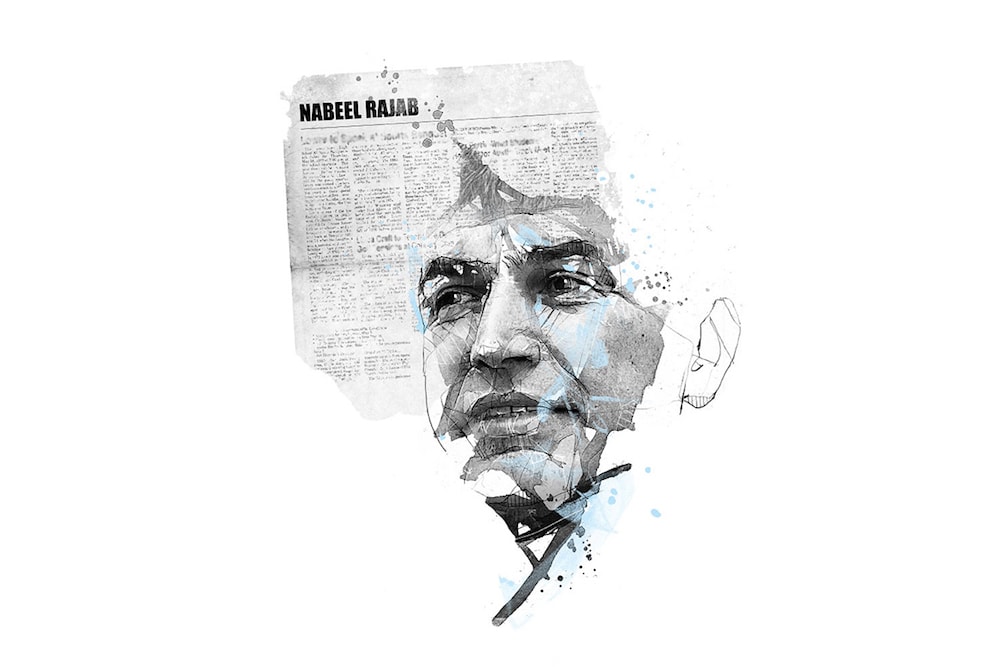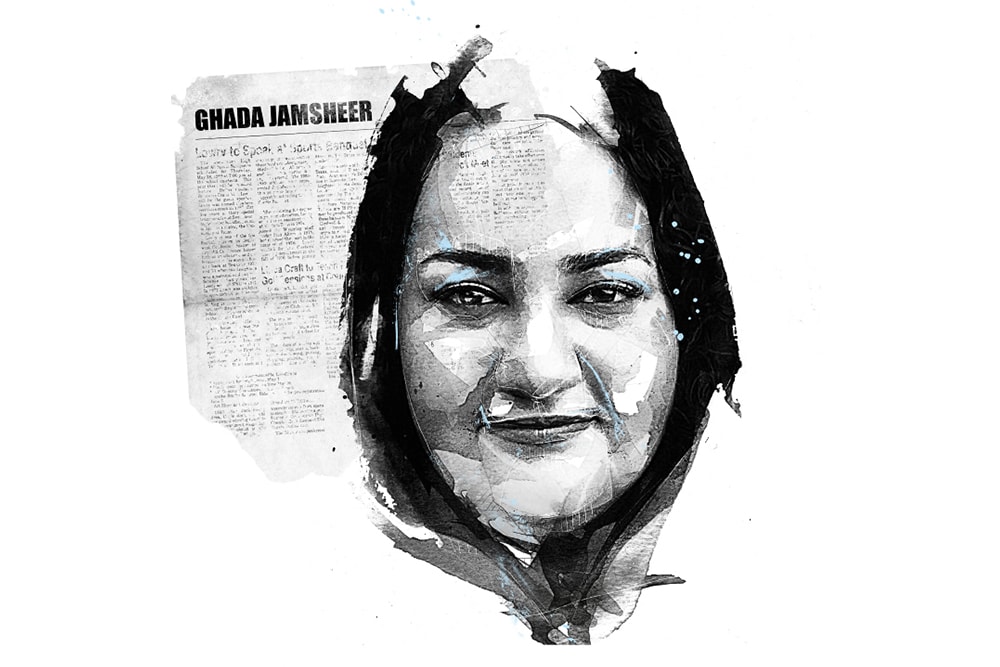On 9 June, 2020, Nabeel Rajab was released from prison and, according to his family, will be able to serve the rest of his sentence from home. Rajab was serving a 5-year sentence for tweets alleging abuse at Bahrain’s Jaw prison and criticisms of the Yemen-war waged by a Saudi-led coalition, as well as a 2-year sentence for criticizing Bahrain in television interviews.
In an interview with Frontline Defenders wherein he described his experiences in prison, Nabeel Rajab said: I have a fight to continue and a struggle to do for my people. Prison did not defeat me, I defeated prison.
It is partly thanks to leaders like Nabeel Rajab and Abdulhadi Al-Khawaja that the Bahraini uprising of 2011 is known today as one of the very few pro-democracy movements in the Middle East and North Africa to consistently stand by the ideals of non-violent resistance.
Despite a demonstrated willingness by the Bahraini regime to quell criticism of its policies at all costs, protesters – under the guidance and leadership of a few opposition figures – continue to peacefully and steadfastly call for democratic reforms.
Rajab, a building contractor by trade and one such figure, has made the struggle for human rights and equality his business since the 1990s, when the first wave of mass protests brought together leftists, liberals, and Islamists against state injustice.
Background
In 2000, together with other individuals involved in Bahrain’s activist circles, Rajab founded the Bahrain Human Rights Society, one of the first human rights organisations in the island nation. Since then, he has helped found and run two well-respected and independent civil society groups; the Bahrain Center for Human Rights and the Gulf Center for Human Rights. Both groups are members of the IFEX network.
As Twitter soared in popularity during the Arab uprisings in 2011, Rajab took his activism and his human rights work online. With over 300,000 followers on the social media platform, Rajab’s online words have been influential in Bahrain and across the region. They’ve also been the basis for several run-ins with the law.
In May 2012, he was charged with “insulting a statutory body via Twitter” and detained for three weeks. In early July 2012, he was charged with insulting the prime minister in a tweet and sentenced to three months in jail. On 16 August 2012, he was sentenced to three years in prison for illegal political activities involving the use of social networking sites. He was released on 24 May 2014, after serving two full years in prison.
His most recent brush with the judiciary took place on 13 June 2016. He was detained on charges of “spreading false information and rumors” for tweeting and re-tweeting statements that criticized the actions of Bahrain’s forces in Yemen, where they joined the Saudi-led coalition in fighting the Houthi rebels.
Rajab was kept in solitary confinement until December 2016, when a judge consented to an application for his temporary release after the prosecution failed to provide sufficient evidence linking the tweets to his account. However, Rajab was immediately re-arrested on the same day in relation to interviews he gave in 2015 and 2016 where he commented on Bahrain’s poor human rights record.
In April 2017, Rajab underwent surgery to remove an ulcer from his back. Upon being returned to his prison cell after the operation, his recovery was put at additional risk due to insanitary prison conditions, leading to him being returned for emergency medical attention.
Unable to attend his trial hearings during this time, Rajab was subsequently sentenced in absentia on 10 July 2017 to two years in prison. Convicted of “deliberately spreading false information and malicious rumours with the aim of discrediting the State”, his sentence was condemned inside Bahrain and internationally with protests including from the EU, the USA, German and Norwegian governments. The UN High Commission on Human Rights demanded Rajab’s release in a 14 July statement, adding: “Human rights defenders in Bahrain must be able to carry out their work without fear of reprisals, and should not face detention or prosecution for exercising their right to freedom of expression. Criticising the Government should not be a crime.”
In February of 2018, while serving his two-year sentence, Rajab was sentenced to five years in prison in relation to posts on his Twitter account in 2015 as well as retweets about alleged torture in Bahrain’s Jaw prison, and the killing of civilians in the Yemen conflict by the Saudi Arabia-led coalition. In anticipation of the 31 December hearing over his case, over 50 NGOs demanded his unconditional release. Unfortunately, the Bahraini Court of Cassation upheld his prison sentence, a decision which IFEX strongly condemns.
While admired and supported internationally, inside Bahrain Rajab is considered by some a divisive public figure. In order to rally support for its brutal crackdown on the opposition, the Bahraini regime and media outlets towing the official line launched a smear campaign against many of the leaders of the movement, Rajab included. They framed the issue at hand in sectarian terms and accused the opposition of working with Iran to impose Shiite rule on the Bahraini nation and its people. Rajab himself has been accused by many pro-government individuals of being a Shiite spy bent on destroying the national identity of Bahrain.
On 17 September 2019, Rajab’s request for a non-custodial sentence was rejected by Bahrain’s High Court of Appeals without justification. Having exhausted all the legal avenues to secure his freedom, Rajab’s family responded to the court’s decision, saying: “rejection after rejection for a man who is in jail for a tweet is a manifestation of the state of injustice our father is subjected to.”
Knowing how easily he can be discredited along sectarian lines, Rajab is careful not to employ sectarian discourse in his work. He campaigns for and stands in solidarity with any and all communities suffering injustice. In 2003, Rajab founded one of the first migrant workers protection committees in the Gulf Cooperation Council countries. He still draws attention to the exceptional vulnerability of migrant workers and the exploitation of their communities by companies and government representatives across the GCC.
The situation in Bahrain remains critical, with the government continuing to convict critics for their peaceful expression, and carry out executions.
On 9 June, 2020, Nabeel Rajab was released from prison and, according to his family, will be able to serve the rest of his sentence from home. Rajab was serving a 5-year sentence for tweets alleging abuse at Bahrain’s Jaw prison and criticisms of the Yemen-war waged by a Saudi-led coalition, as well as a 2-year sentence for criticizing Bahrain in television interviews.


